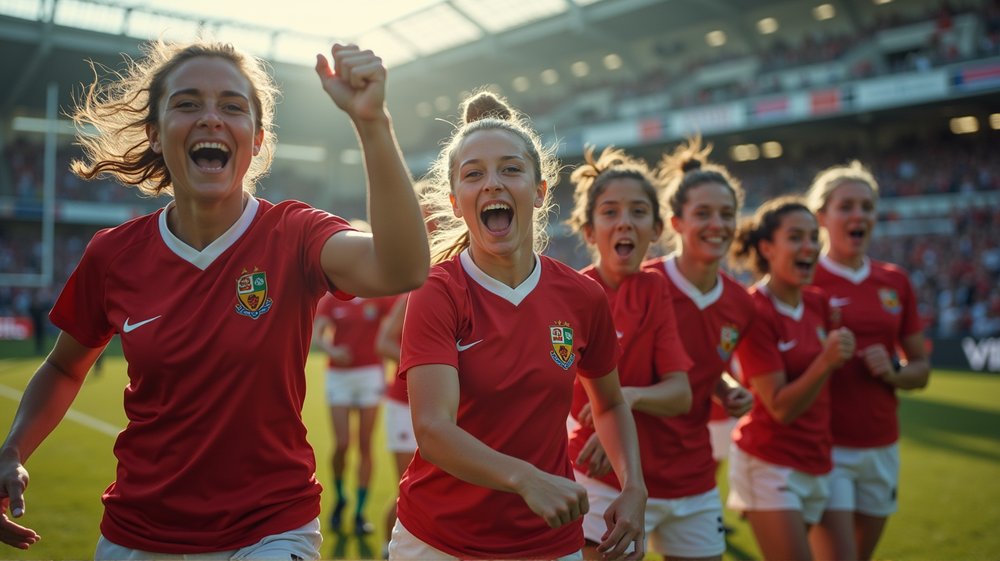As England’s Women’s Rugby World Cup team celebrates a landmark victory, hopes are soaring that this triumph could be the catalyst needed to keep thousands of young girls engaged in sports. According to recent research by Women in Sport, a staggering million teenage girls quit sports during their transition from primary to secondary education.
Breaking Down the Barriers
The idea is not just about sports; it’s about building self-esteem, resilience, and a sense of community, as evidenced at Perton Middle School in Staffordshire. There, physical education teacher Liz Brown emphasizes how crucial sport is in nurturing youthful confidence. “Sport and PE is the vehicle. My real job is to create personalities, confidence and resilience,” she shares passionately.
A Campaign Driven by Passion and People
Leveraging the excitement of the Women’s Rugby World Cup, England’s Red Roses launched the ‘For the Girls’ campaign, aiming to inspire more females to stay active. Grassroots sports funding, such as the government’s £400m allocation to remove participation barriers, underscores this robust support.
Rugby’s Growing Allure
At Worcester Rugby Club, the buzz surrounding the World Cup has not gone unnoticed. Young girls like Jessie and Elinor echo a growing sentiment: rugby is now trendy and inviting. Elinor adds, “I turned on my phone after school today and all I got was rugby social media. I was loving it.”
Building Lifelong Bonds
Jessie’s enthusiasm for rugby is fueled not just by sport but by camaraderie. Her coach, former winger Nicky Crawford, reinforces that sporting friendships often persist for life. “When the Red Roses are scoring the tries, just the smiles on their faces inspire girls to say ‘I want to do that,’” she marvels.
A Future Etched in Rugby
With substantive investments, like the £12.1m promised for rugby opportunities, England’s Rugby Football Union is strategically planning to enroll 100,000 female players by 2027. This ambition pairs with aspiring players’ hopes, like those at the Worcester club, who benefit from an inclusive and supportive environment where everyone can thrive, regardless of background or ability.
Inspiring New Generations
The inclusive approach at Worcester, which introduced the country’s first women’s mixed ability team, highlights the evolving rugby landscape. Players like Jennie Hussain, who once feared being judged, now embrace the supportive spirit that surrounds her training sessions.
Amid the victories and campaigns, the underlying message is compelling: the joy of sport should be accessible to all. England’s Women’s Rugby World Cup heroes show young girls that the pitch is theirs to conquer. “When girls see themselves represented,” says Hilborne, “they are given the freedom to dream big.”
As stated in BBC, the social media, TV coverage, and influence from events like the Women’s World Cup are helping make a difference, potentially reversing the trends of sports dropout among girls. Perhaps this is just the beginning of a dramatically different narrative.













